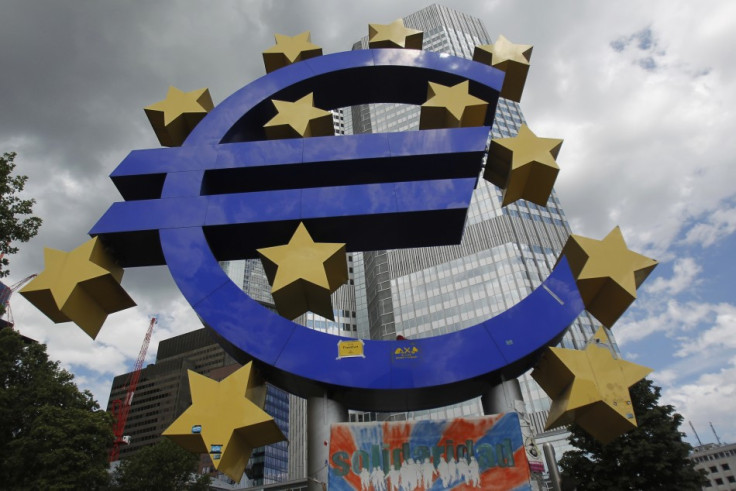Eurozone Inches From Recession But German Data Points to Second Half Slide
The Eurozone economy contracted by 0.2 percent in the three months ending in June, Eurostat said Tuesday, but flat growth in the first quarter means the region narrowly avoided recession in the first half of the year.
The European Commission's statistics office said its earlier reading of a 0.1 percent first quarter contraction was revised to a 0.0 percent growth, meaning the Eurozone avoids two consecutive quarters of negative GDP and thus the generally accepted definition of recession.

However, data from Germany this morning suggest the 19-memeber Eurozone will be unlikely to escape contraction in the second half as exports slow and the worst of the region's debt crisis takes its toll on business confidence.
The ZEW Centre for European Economic Research sentiment index for August, a bellwether reading of confidence in the region's largest economy, fell to a worse-than-expected -25.5 from -19.6 in June, the Mannheim-based group said Tuesday. The current conditions portion of the poll also fell to 18.2 from 21.1 in the previous month. Both figures suggest a marked slowdown in the coming six months for both the German and Eurozone economies.
The Eurozone contract of 0.2 percent compares to a 0.4 percent expansion during the same period last year, Eurostat said.
"These numbers continue to paint an all too predictable picture of growth in Europe, with expansion in Germany driven by exports and consumption, growth in France stagnating and deep recessions continuing in southern Europe." said Societe Generale economist James Nixon in a note to clients. "Moreover there seems little to suggestthat this pattern will change and our initial forecast wouldbe for exactly the same performance to be repeated forthe rest of this year."
Germany's economy expanded at a 0.3 percent clip, according to figures from the Federal Statistic Office, slower than that 0.5 percent pace recorded in the three months ending in March but slightly better than analysts had forecast. Data released in France also showed a marked slowdown in growth at the worst of the sovereign debt crisis bite hard into demand. Europe's second-largest economy registered no growth at all for the third consecutive quarter.
"Although the pace of growth slowed compared to (the first quarter) the outcome was slightly better than expected," said Barclays' economist Thomas Harjes in a research note to clients. "However, the risk of another soft patch in H2 2012 is significant as most parts of Southern Europe remain in recession and overseas demand has also softened lately."
Germany's FSO typically releases a more detailed analysis of its figures several days after the first publication, but it did remark Tuesday that stronger exports and private domestic consumption offset weaker industrial investment during the three month period.
The European single currency was little changed after the Eurostat data at 1.2359 against the US dollar while German benchmark 10-year bund yields were 1 basis point higher at 1.42 percent.
© Copyright IBTimes 2025. All rights reserved.





















